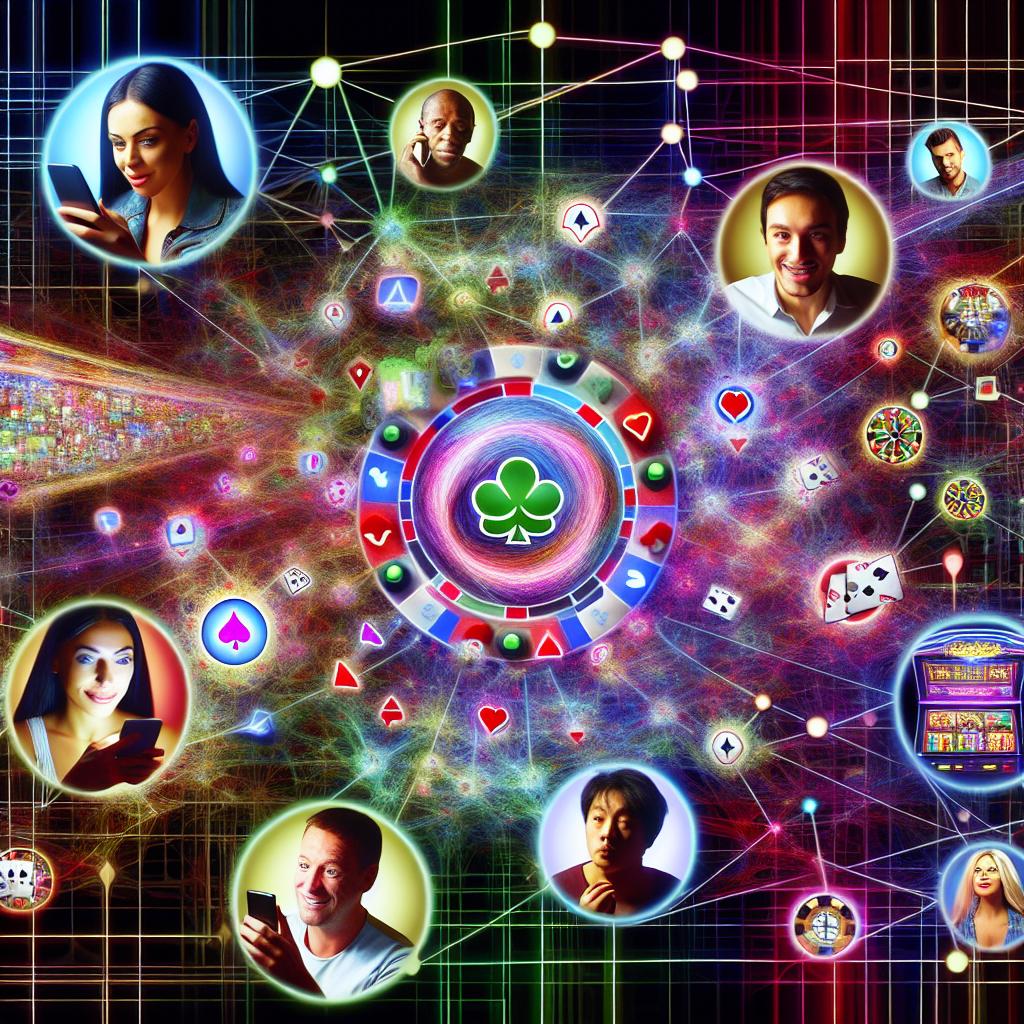The Role of Social Media in Excessive Gaming
The rapid rise of social media platforms over the past decade has significantly influenced many aspects of human behavior, including gaming habits. This interaction between social media and gaming is complex and multifaceted, impacting gamers in numerous ways. This article will explore how social media catalyzes excessive gaming and the broader implications of this trend.
Social Media as a Gaming Hub
Social media platforms have become integral to the gaming ecosystem, providing spaces where gamers can share experiences, discover new games, and connect with communities. Platforms like Facebook, Instagram, and Twitter are increasingly integrating gaming features, making it easy for users to access games directly or through links. These social platforms facilitate real-time interactions, leading to a more immersive and engaging gaming experience.
The accessibility of games through social media allows gamers to participate in gaming activities with minimal barriers. The ease with which individuals can start a new game, join a gaming community, or immediately interact with fellow gamers has led to increased gaming frequency. For some users, this translates into excessive gaming habits, demonstrating how social media integrates effortlessly into their daily lives. The constant availability of games encourages users to engage more frequently, blurring the lines between casual gaming and more compulsive playing patterns.
Community and Peer Pressure
A significant driver of excessive gaming through social media is the influence of community and peer dynamics. Gamers often join communities on platforms like Discord and Reddit, which facilitate social interactions and shared experiences. These communities can lead to increased gaming participation due to peer encouragement. Within these forums, members often discuss strategies, share in-game achievements, and sometimes even engage in friendly competition.
These communities foster connections and friendships, thus resulting in heightened social pressure to partake in gaming activities. Such peer influence can shape an individual’s gaming behavior, motivating them to seek approval or social standing within the group. Competitive elements, such as challenges and leaderboards, are frequently advertised and discussed on social media. This aspect entices gamers to dedicate more time to improve their skills, seeking recognition or rewards, which can further reinforce gaming behaviors.
Algorithmic Promotion and Content Sharing
Social media algorithms play a pivotal role in shaping user behavior. These algorithms are designed to promote content that aligns with users’ interests and previous interactions, thereby retaining engagement. Gaming-related content is often prioritized based on a user’s activity, leading to a continuous stream of curated content that includes trending games, gaming tips, and live streams.
The constant exposure to gaming content keeps users immersed in the gaming culture. Platforms such as YouTube and Twitch have revolutionized the way gaming content is consumed by providing platforms for extensive amounts of gaming videos and live streams. Gamers can watch these videos, often for hours on end, absorbing gaming techniques, strategies, and behaviors demonstrated by popular streamers and content creators. This exposure influences users to emulate these gaming behaviors, potentially leading to extended gaming sessions as viewers strive to replicate the success or skill of their favorite creators.
Implications of Excessive Gaming
While social media enhances connectivity and enjoyment within the gaming community, the potential for excessive gaming poses several concerns. It is important to acknowledge that gaming in moderation can be a positive and rewarding experience; however, when gaming becomes excessive, it can result in negative consequences for the individual.
One of the most prominent issues related to excessive gaming is its impact on physical health. Reduced physical activity is a common consequence, as extended hours spent on gaming often mean less time dedicated to exercise or movement. Additionally, prolonged exposure to screens can disrupt normal sleep patterns, leading to sleep deprivation and its associated health impacts.
Excessive gaming can also contribute to potential mental health issues, such as increased anxiety or depression. The online gaming environment can sometimes foster toxic behavior or cyberbullying, which can negatively affect a gamer’s mental state. Furthermore, excessive time spent gaming can interfere with academic, professional, or personal responsibilities. This interference can result in a disruption of daily routines and a decline in productivity in critical areas of life.
It is crucial for both gamers and their families to be aware of the relationship between social media and gaming habits. By understanding this connection, they can better manage screen time and encourage healthy breaks from digital activities. In doing so, they can maintain a balanced lifestyle that allows for the enjoyment of gaming while preserving overall well-being.
For more insights on responsible gaming practices and strategies, readers may find valuable resources from organizations such as the Cybersmile Foundation.
Conclusion
Social media plays a substantial role in influencing gaming behaviors, often encouraging excessive gaming through community dynamics, algorithmic content promotion, and integrated gaming features. While the integration of social media and gaming offers numerous benefits, such as enhanced connectivity and community building, it is critical to recognize the potential for excessive gaming. By addressing the challenges that arise from this interconnection, individuals can strive to achieve a healthier balance between gaming and other life activities.
Promoting responsible and mindful engagement with both gaming and social media is essential. By doing so, users can ensure they enjoy the best of what these platforms offer while avoiding the pitfalls associated with excessive use. This holistic approach can foster a well-rounded lifestyle that incorporates gaming as a positive and enriching hobby, rather than an all-consuming activity.

